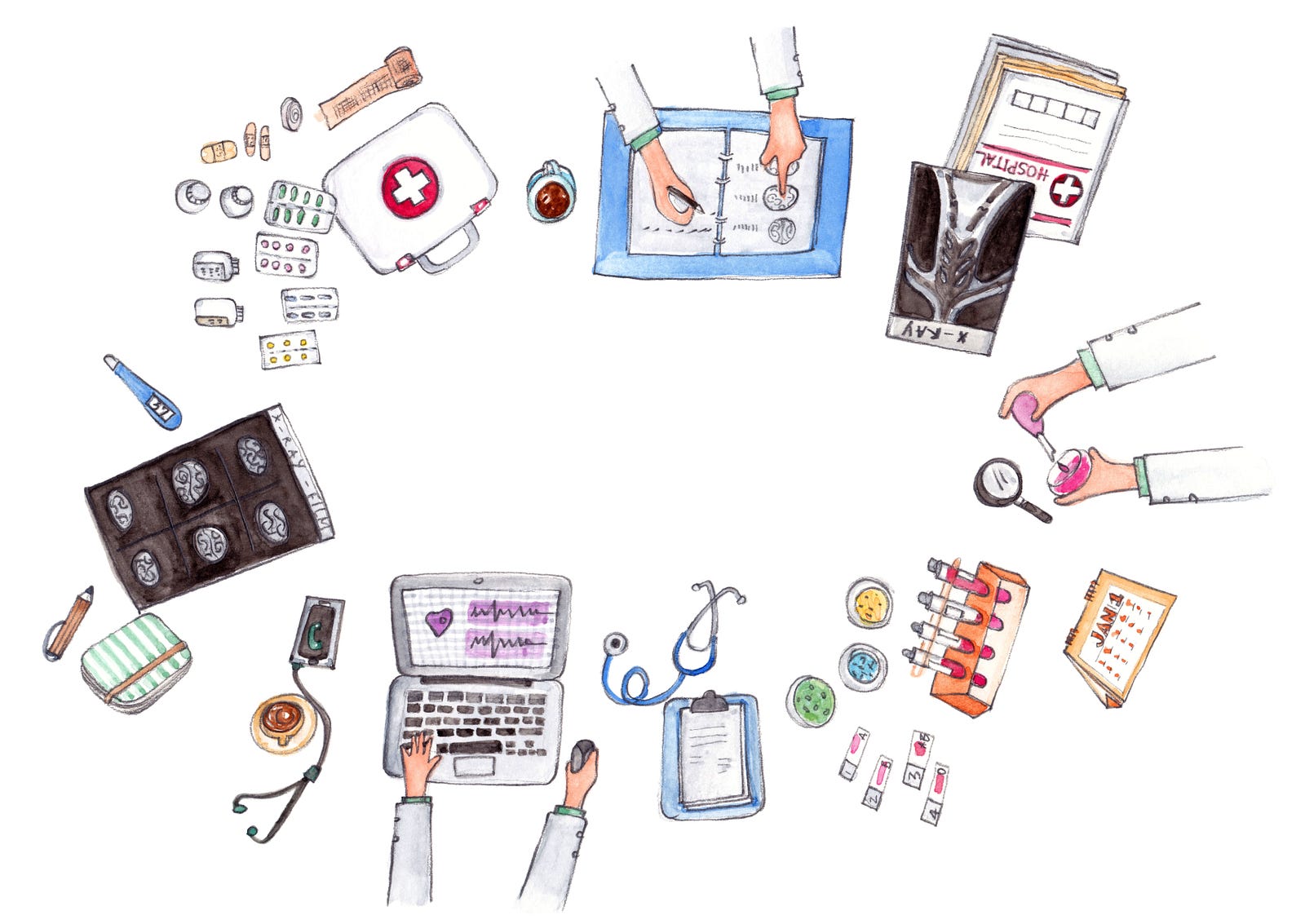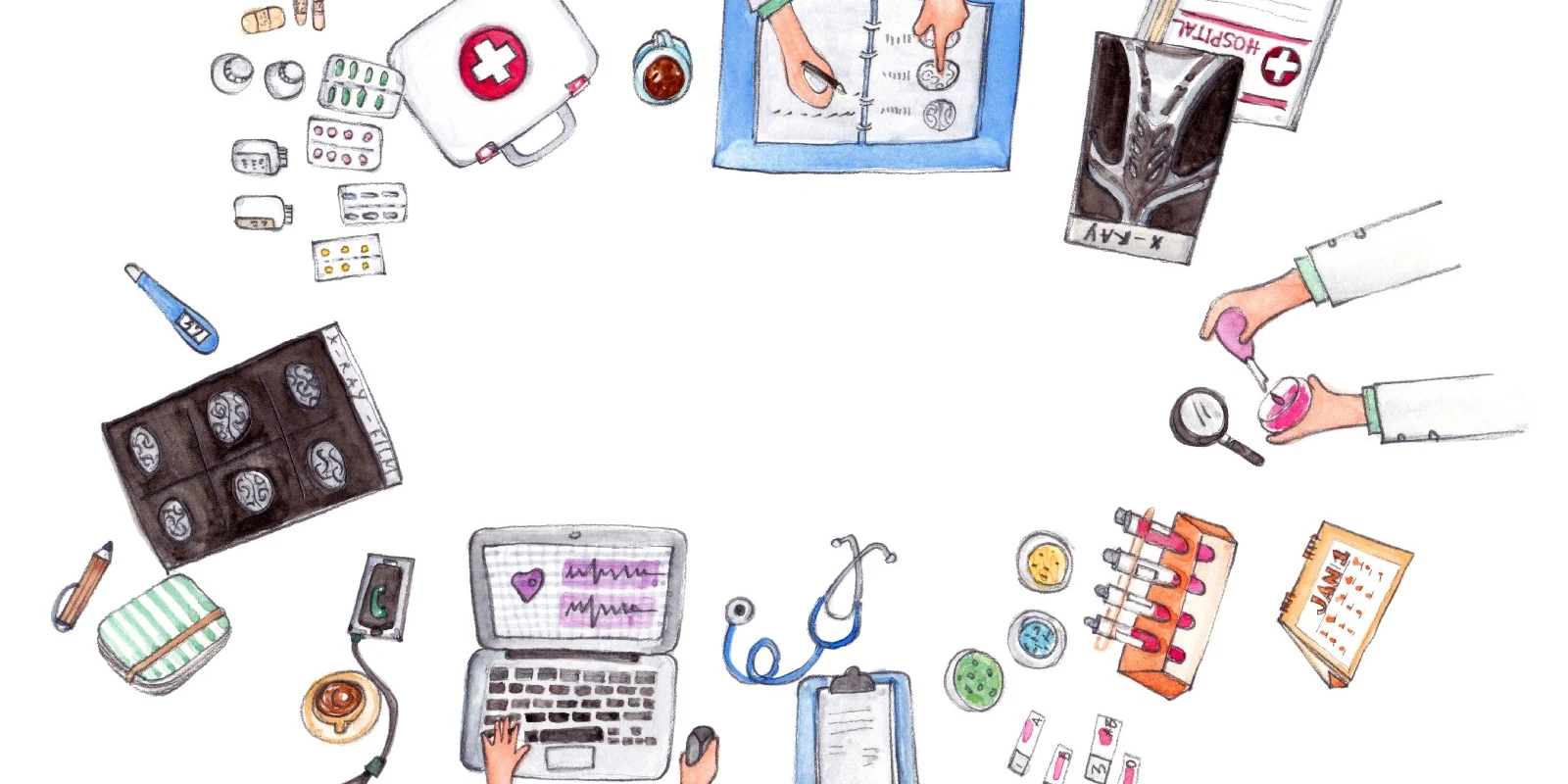
Op-Med ran the “Primary Care” contest in March 2018. We are excited to announce this piece as an honorable mention.
I did not always know I wanted to be a doctor but I have always wanted a job where I could help people. When I left a career as a public school teacher to go to medical school the only specialty I ever really considered was primary care. As a teacher I loved getting to know my students and I wanted the same relationships with my future patients. I knew primary care was not the most popular specialty but both in medical school and in my internal medicine residency I have been surprised how few people are interested in a generalist career. My colleagues are all immensely intelligent, motivated and talented people and they will make amazing cardiologists, hospitalists and intensivists. But I wish more of them wanted to join me in outpatient and community clinics after graduation and it seems there is a problem somewhere in the system if so few of these smart people are interested in primary care.
The experiences residents have during their training shape their career interests. Most of our clinical training occurs in hospitals, where subspecialties are the norm. Not only is there not enough emphasis on outpatient training but the majority of our outpatient experiences occur in chaotic hospital outpatient clinics, which are often disorganized, overbooked and, frankly, not a great example of well-run outpatient medicine. A study by Erikson et al showed that students who went to schools where they had more positive experiences in primary care settings during clerkships were more likely to go into primary care after graduation [1]. And there is evidence that dysfunctional clinic experiences also turn residents away from primary care [2]. Trainees need more positive examples of primary care before they can start imagining themselves in that role.
Primary care is not as glamorous, competitive or well-compensated as other specialties. Medicine is a competitive field and students work incredibly hard to get into competitive medical schools. This culture of competition and prestige leads students to continue to push themselves so they can get spots in coveted residencies. The demand for primary care physicians is huge so it will never be the most competitive field. By 2020 there will be a projected shortage of more than 20,000 primary care providers [3]. Additionally, primary care providers earn an average of $220,000 per year while specialist like cardiologists earn an average of $400,000- $500,000 per year [4]. For residents facing overwhelming debt after residency, primary care might be less appealing than a specialty with a bigger paycheck.
More doctors might be interested in primary care if the pay was higher or if they had more exposure during their training but I think the biggest challenge facing primary care is that it is considered less interesting and less prestigious than other specialties. I was once dismissively told by a resident training at a different institution that I should not bother with primary care because it is a field for nurse practitioners and physician assistants. Why waste a medical education on primary care? My mother, who is a family physician, remembers when she was applying to residency someone saying to her: “You’re smart, why would you go into family medicine?” Columbia Medical School not so long ago almost shut down their family medicine program and the school dean was quoted as saying “our primary goal is not to train family physicians, which is the goal that some state schools have” [5]. These examples all reflect an underlying and pervasive bias against primary care that impacts doctors at all levels of training.
I love being a primary care doctor because I enjoy the relationships I have with my patients, and I hope my care can keep them healthy and out of the hospital. Primary care doctors do more than give annual checkups and refer to specialists. They can manage complex chronic disease and make key diagnoses early. The satisfaction of good primary care is subtler than stenting the LAD after a STEMI or placing a central line in a septic patient but I would not trade it for the pride I share with my patients when they lower their hemoglobin A1C or follow-through on an exercise goal we set together. Prevention is less sexy but still so important! There are many challenges facing primary care doctors, including pressure to see patients in as little time as possible and the burden of excessive documentation. But I see it as a challenge to create better systems that take care of people more efficiently. To me this is all the more reason that we need smart people in the field solving problems and changing the system.
Susan Creighton is an internal medicine resident in New York City and former high school teacher. She is looking forward to a career in primary care.
References:
- Erikson CE, Danish S, Jones KC, Sandberg SF, Carle AC. The role of medical school culture in primary care career choice. Acad Med. 2013 Dec;88(12):1919–26.
- Keirns CC, Bosk CL. Perspective: the unintended consequences of training residents in dysfunctional outpatient settings. Academic medicine : journal of the Association of American Medical Colleges. 2008;83(5):498–502.
- US Department of Health and Human Services. Projecting the Supply and Demand for Primary Care Practioners Through 2020. November 2013. http://bhpr.hrsa.gov/healthworkforce/supplydemand/usworkforce/primarycare/
- Japsen, B. Doctor pay rises to $221K for primary care, $396 for specialists. Forbes Online. 12 June 2013. http://www.forbes.com/sites/brucejapsen/2013/06/12/doctor-pay-rises-to-221k-for-primary-care-396k-for-specialists/
- Raman A, Chang C, Fanto D. Trial by Firings: Lessons in Organizing at New York-Presbyterian. http://www.aafp.org/news/opinion/20151019guested-nypfmresidency.html
- Warm EJ, Goetz C. Too smart for primary care? Ann Intern Med. 2013 Nov 19;159(10):709–10.







